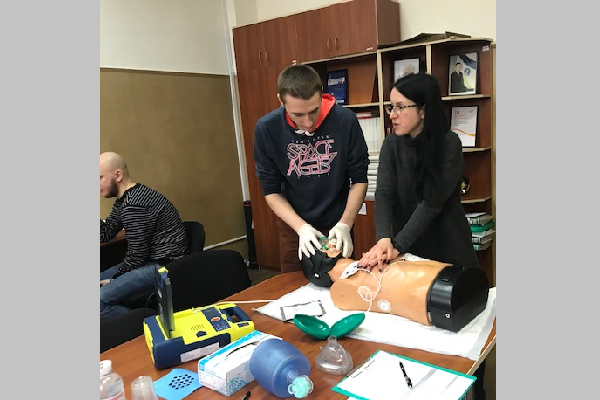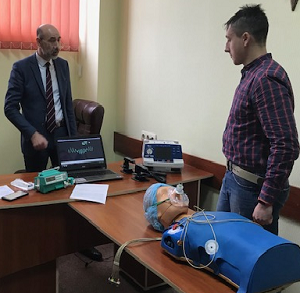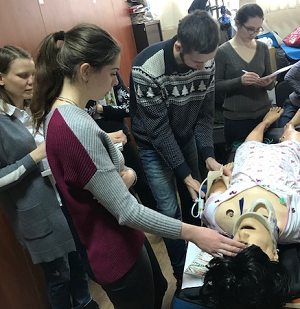The rethinking of approaches in modern medical postgraduate education implies practical implementation of the latest ideas. Among them there is a wide introduction at the Department of Anesthesiology and Intensive Care OSCE – an objective structured clinical examination.

Today, this is the standard method of determining competence and assessing clinical skills in the United States, Great Britain, Canada, and other developed countries.
The purpose of this innovation was to improve the efficiency of study interns by activating the training. The need to introduce such forms of training and control is due to the fact that in the processes of decision-making on emergencies, the key role is played not only by the algorithms but also by the personal experience of the doctor, which with OSCE can be obtained at various simulation stations.
 On February 27, 2019 OSCE system was used at the Department of Anesthesiology and Intensive Care in order to determine the level of theoretical knowledge and practical skills during the transitional exam of interns in the first year of study in the field of Anesthesiology and Intensive Care. At the same time assessment of knowledge at individual stations - "Cardiology Station", "Preoperative examination of the patient", "Difficult respiratory tract", "Cardiopulmonary resuscitation", etc.
On February 27, 2019 OSCE system was used at the Department of Anesthesiology and Intensive Care in order to determine the level of theoretical knowledge and practical skills during the transitional exam of interns in the first year of study in the field of Anesthesiology and Intensive Care. At the same time assessment of knowledge at individual stations - "Cardiology Station", "Preoperative examination of the patient", "Difficult respiratory tract", "Cardiopulmonary resuscitation", etc.

To prepare these stations, criteria were defined which could be objectively evaluated in a simulated complex clinical situation. The greatest difficulties with interns were caused by the first two simulation stations. Therefore, in the future, it will be more meticulous to increase the level of teaching and practical skills of interns in these areas.
As noted by the end of the exam, the head of the department, Professor Oleg Loskutov on debriefing, such a modern standardized method as OSCE, allows to quickly, effectively and objectively evaluate the knowledge of interns. All the teachers of the department spoke at the final conference, having wished the interns to take into account the comments made that, in the future, along with their daily work, will promote the increase of their level of skills in clinical practice.



